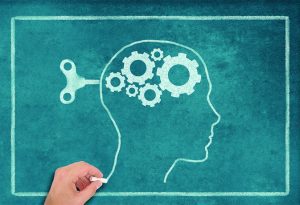

What is good mental health? Typically a person with “good”, or more accurately, “standard” mental health is characterized by being able to perform certain activities and have measured control of functioning. Some of the characteristics of good mental health notated by the medical system are: having the ability to learn new things, having a desire to relate to others and form bonds, capacity to accept change, and the ability to process and express both negative and positive emotions.
There are two main classifications systems in the psychiatric profession. The first is through the World Health Organization (WHO), and the other is through the Diagnostic and Statistical Manual of Mental Disorders, or the DSM Axis system.
The WHO recognizes the following list of classifications.
ICD-10-classification for mental disorders consists of 10 main groups:
– F0 Organic, including symptomatic, mental disorders
– F1 Mental and behavioral disorders due to use of psychoactive substances
– F2 Schizophrenia, schizotypal and delusional disorders
– F3 Mood disorders
– F4 Neurotic, stress-related disorders
– F5 Behavioral syndromes associated with physiological disturbances and physical factors
– F6 Disorders of personality and behavior in adult persons
– F7 Mental retardation
– F8 Disorders of psychological development
– F9 Behavioral and emotional disorders with onset usually occurring in childhood and adolescence
In addition, there is a group of “unspecified mental disorders.”
The DSM lists the following five axes under the classification system of the American Psychiatric Association (APA):
Axis I: Clinical Disorders (mental disorders like panic attacks, paranoia, exacerbated depression and schizophrenia)
Axis II: Personality Disorders (mental retardation and learning disabilities)
Axis III: Physical symptoms (Non-Mental) Medical Conditions and neurological problems associated or exacerbated by previous physical illness or abnormalities
Axis IV: Psychosocial Stressors (emotional problems related to death, divorce, lifestyle failures)
Axis V: Global Assessment of Functioning (GAF), (levels of “Standard of Living” operation, please see below)
The GAF assessment standards for Axis V are in-depth scientific measurements of behavior. The levels are listed between 100 to 1, and some examples of the detailed analysis include; normal functioning, social impairment, stress-related impairment, hallucinations, harming oneself, inability to maintain relationships, etc.
Natural ways to improve your mental condition:
There are simple ways to improve your mood. For example, eating a healthy diet can do wonders in the body and protect against stress-related inflammatory effects. Studies have shown that foods high in Omega fatty acids, specific grains and antioxidants can reduce the effects of depression and schizophrenia.
Want to add even more mental health benefits? Just 30 minutes of daily exercise done a few times per week can boost “feel good” brain chemicals. Exercising can alleviate stress and frustration, lift your mood, suppress depression, help control addictions and increase creativity.
When to get help?
If you or someone you love has any anxiety, stress-related factors, addictions, or severe psychiatric conditions, please seek out a professional immediately. Even just simply talking through your problems can get you well on the way to recovery. Just having a listening ear is often exactly what an individual needs. For more extensive cases, like Bi-polar disorder, there is a multitude of treatment options that include medications, counseling and behavioral training.
Manatee Technical College
Specific programs in medical coding, medical administration and other career preparatory programs in the healthcare field are offered at Manatee Technical College. With four campuses in the Bradenton area, Manatee Tech offers over 50 career and technical education programs. They’re proud to provide training in some of the fastest growing careers in the U.S. with their “career-in-a-year” motto. Many of the accredited programs range from 6-12 months of studies. For your convenience, they offer a number of online classes as well. To find out more, please visit manateetech.edu, or call 941. 751.7900.
 Southwest Florida's Health and Wellness Magazine Health and Wellness Articles
Southwest Florida's Health and Wellness Magazine Health and Wellness Articles

